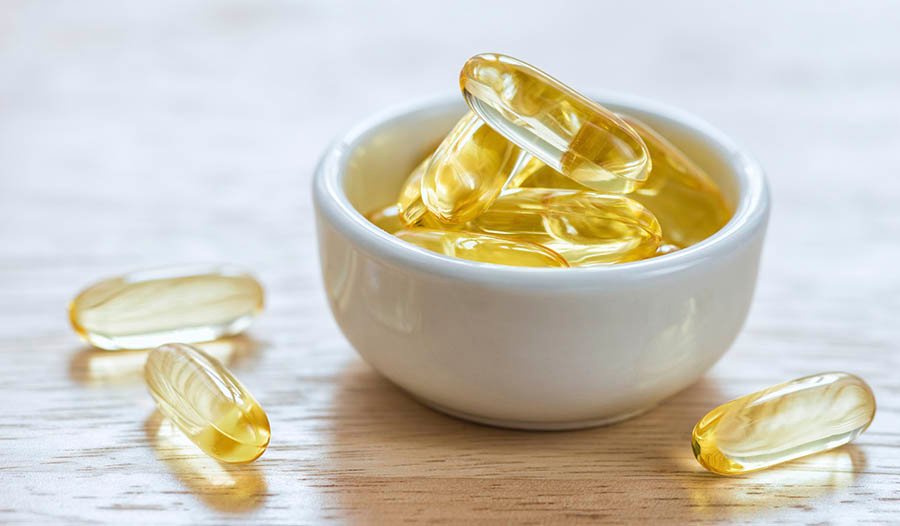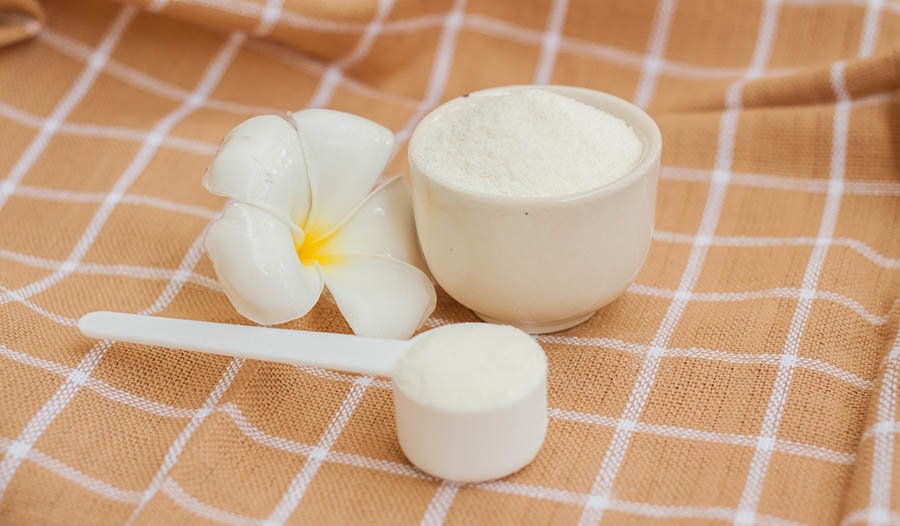Health Benefits of Omega-3 Fatty Acids
Omega-3 fatty acids, also known as polyunsaturated fatty acids or PUFAs, play an important role in human health. It is believed to have many benefits for the heart, brain, intestines and joints, thanks to solvents, active metabolites that, according to studies, help reduce inflammation.
Omega-3 fatty acids include:
Alpha linolenic acid (ALA and omega-3 fatty acid), which can be found in flaxseeds, walnuts, soy, chia seeds and hemp seeds.
Fat acid (EPA or icosapentaenoic acid), which is commonly found in fish oil, krill oil, and eggs (if chicken is fed with EPA).
Docosahexaenoic acid (DHA, an omega-3 fatty acid), is a large component of the human brain, skin and eyes. Although important, it is not considered “necessary” since it can be manufactured when a person has a sufficient amount of alpha-linolenic acid (ALA).
A 2014 study showed that the majority of U.S. adults do not meet weekly recommendations for omega-3 fatty acid consumption – 90 percent of Americans do not meet the American Heart Association’s recommendation for two servings of 3.5 ounces of low-mercury fish per week. This palace is not unique in North America but also exists throughout Europe, the Middle East and parts of Asia. This is unfortunate because there are many common circumstances that can be useful for providing sufficient quantities.
Omega-3 anxiety
Anxiety disorder affects millions around the world. The prescription often describes taking some medications, some of which can become a habit. Many resort to other alternatives. Jama’s 2018 after-analysis, which included 2,240 participants from 11 countries, concluded that omega-3 fatty acids can help reduce symptoms of clinical anxiety. Other studies have found similar results.
Omega-3 arthritis
As a single age, osteoporosis can affect the joints, usually causing morning stiffness and difficulty moving. For many, pain may improve with movement, but reducing inflammation in the body is critical. Omega-3 fish oil (EPA/DHA) can be helpful. I highly recommend omega-3 fish oils for patients with arthritis symptoms and the results have been good. This often allows patients to reduce reliance on non-steroidal inflammatory drugs (NSAIDs: ibuprofen, naproxen, diclofenac), which can increase the risk of heart and kidney complications.
Studies show that essential fatty acids help reduce pain and reduce the use of NSAIDs. Studies also indicate reduced joint stiffness when consuming fish oil daily.
Omega-3 asthma
Asthma is an irreversible inflammatory lung disease that occurs when the muscles surrounding lung tissue contract. It is affected by 300 million people worldwide, and nearly 250,000 people die from complications of the condition each year. Asthma can cause symptoms such as wheezing, coughing and shortness of breath.
Scientists measured the increase in inflammatory proteins (IL-17A, TNF-α) in the blood of asthmatics. The researchers observed a decrease in these levels in children with mild to moderate asthma while taking 180 mg of EPA/120mg DHA per day for three months. In addition, clinical lung function testing improved in 72 percent of patients.
A 2017 study suggested that fish oil supplements can help pregnant women reduce their children’s postpartum asthma symptoms (consult your doctor if you are pregnant). A 2018 study on child allergy and immunity concluded that “introducing fish consumption early in life (6-9 months) and regular consumption of all fish (at least once a week) reduces asthma and sizzling children up to the age of four and a half years, while fatty fish intake may be beneficial for older children.”
Finally, in a 2016 study in nutrition research assessments, researchers concluded that eating omega-3 fish oil could benefit asthma tics, while another 2016 study on cytokines concluded that Omega-3 was a promising complementary approach to asthma management. Learn more about natural approaches to asthma treatment.
Omega-3 and Depression
Depression is a common disease that affects millions. The reasons are numerous. Prescribed medications can be helpful, but often take experiments on different combinations before a person finds those that are the best. Many are looking for alternative methods, and improving essential fatty acids is one of the methods used.
A 2001 study showed that EPA (essential fatty acids) can help people with severe depression. A 2015 study in integrative medicine research supported the use of omega-3 fish oil in the treatment of depression, while a 2017 study of 38 children with depression and anxiety showed that those with symptoms of depression often improved when taking omega-3 fatty acids. Their anxiety symptoms did not improve significantly in this study.
A 2017 study of adults found that there is insufficient evidence on omega-3 fatty acids to prove that they can be beneficial enough in people with depression. There was no evidence of mischief. Further studies are needed for further evaluation.
Omega-3 and Gut Health
Healthy bowels are important for public health. It is known that the axis of the gut plays an important role in cognitive and physical health. Omega-3 fatty acids play an important role in helping to balance the digestive microbiome and appear to have a pre-bacterial effect, according to a 2017 study in the International Journal of Molecular Sciences. A 2016 animal study also showed that omega-3 fatty acids can protect the gut from changes made by antibiotics that can lead to a defect in healthy gut bacteria.
Omega-3 and Heart Disease
Heart disease kills millions of people around the world. Modern medicine focuses on reducing risk factors such as high blood pressure, cholesterol and diabetes in the hope of reducing complications from heart disease. Omega-3 fatty acids may also play a role.
During a 2013 study in the Annals of Internal Medicine, 2,692 adult males from the United States were studied between the ages of 69 and 79 without a history of heart disease, stroke or congestive heart failure. Men had measured their blood fatty acid levels in 1992. They were followed up during 2008. The researchers showed that those with higher levels of EPA and DHA were 17% and 23% less likely to die. They concluded that levels higher than total 3 PUFA levels were associated with a lower risk of death from vascular diseases.
In a 2012 study on individuals who had a heart attack, the researchers found that those who took omega-3 fatty acids (EPA and DHA) were 45 percent less likely to die from sudden cardiac arrest, had a 20 percent reduction in cardiovascular disease, and 15 percent were less likely to die for any cause.
Omega-3 and migraine aches
Migraine is a debilitating headache that can change life. It is also a major reason for the absence of work. Prevention is the foundation. A 2017 study showed that omega-3 fatty acids can be helpful in treating those with migraines, possibly by reducing inflammation in the brain. Learn more about the natural approaches to treating migraines.
Omega-3s and painful brain injury
Painful brain injuries (TBI) have become more understandable over the past decade. This dilemma has been highlighted by professional footballers and the complications they have suffered due to multiple concussions. The soldiers were also affected by TBI as a result of the explosion injuries.
Scientists have realized that inflammation occurs when the brain is traumatized. This leads to oxidized damage and an increase in exciting amino acids. During a 2012 study in the American Journal of Emergency Medicine it was suggested that early administration of omega-3 fatty acids could help reduce some of the infections that occur, leading to better results.
In a 2016 study in the Journal of the American College of Nutrition the role of omega-3 fatty acids on public safety was discussed and suggested to be a first-grade treatment for painful brain injury. This can be considered for athletes, soldiers or those who fall into accidents.
Side effects or risk of bleeding?
Doctors usually recommend that patients stop taking fish oil before surgery. According to a 2017 study of 52 other studies, this is not necessary because there is no increased risk of bleeding during or after surgery that can be attributed to fish oil supplements. However, following the doctor’s recommendations is still something we encourage you to follow.
Some may also notice little indigestion due to fish oil supplements. If so, you can take a different brand.
The proposed dose:
The majority take between 500 mg to 4000 mg per day of fish oil. If you are taking a higher dose, half should be taken in the morning and the other half in the evening. There are also vegetarian diet options from EPA/DHA available. Fish oil is available in liquid form, in capsule form and even in chewing gum formulations.










